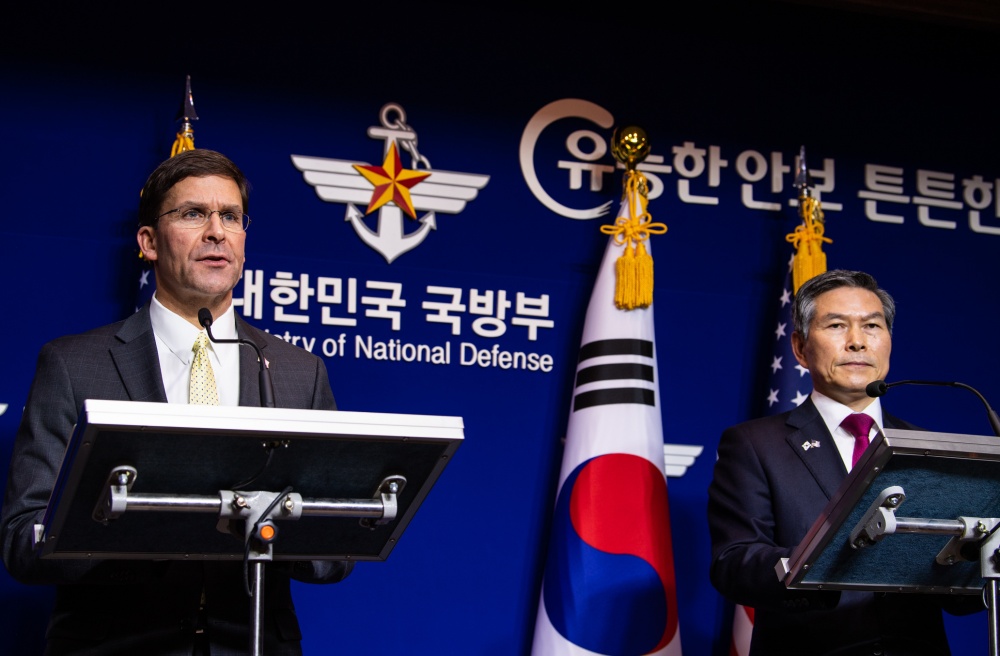
US Denies Troop Reduction In South Korea

Mark Esper with South Korean Defence Minister Jeong Kyeong-doo in Seoul earlier this month (Picture: US Department of Defense).
The United States has reaffirmed its commitment to maintaining the current level of US troops in South Korea.
US Defense Secretary Mark Esper has dismissed claims made by South Korean newspaper Chosun Ilbo that 4,000 American troops will be withdrawn from the country.
"I have not heard that," Mr Esper told journalists, during a trip to Vietnam.
It had been reported that the US was considering bringing a brigade home from the South should Seoul refuse to accept a five-fold increase, or around $5 billion per year, in the upkeep of the US Forces Korea.
"I read articles in the media all the time that are false or inaccurate or overstated.
"We’re not threatening allies over this. This is a negotiation," he added.
Talks are underway to renew the Special Measures Agreement that stipulates the sharing of the cost for maintaining some 28,500 US troops.
In a Twitter statement last week, Mr Esper described the alliance between the US and South Korea as "ironclad".
South Korea remains technically in a state of war with nuclear-armed neighbour North Korea following their 1950-1953 conflict.
US relations with North Korea are also strained, following a stand-off in denuclearisation talks and a failed second summit in February.
The UK, France and Germany have all recently condemned a spate of missile test-launches from North Korea, calling for sanctions on the country.
Mr Esper's visit to Vietnam comes as part of a series of trips to Asian nations, intended to maintain and improve international defence relations.
The US Defense Secretary criticised what America believes to be Chinese intimidation strategies over territories in the South China Sea.
Large-scale militarisation from China in the waters partly claimed by its Asian neighbours, including Vietnam, has led to regular US Navy operations close to Chinese-occupied islands.
During Mr Esper's meeting with China, the US were urged to "stop flexing muscles" in the area.









